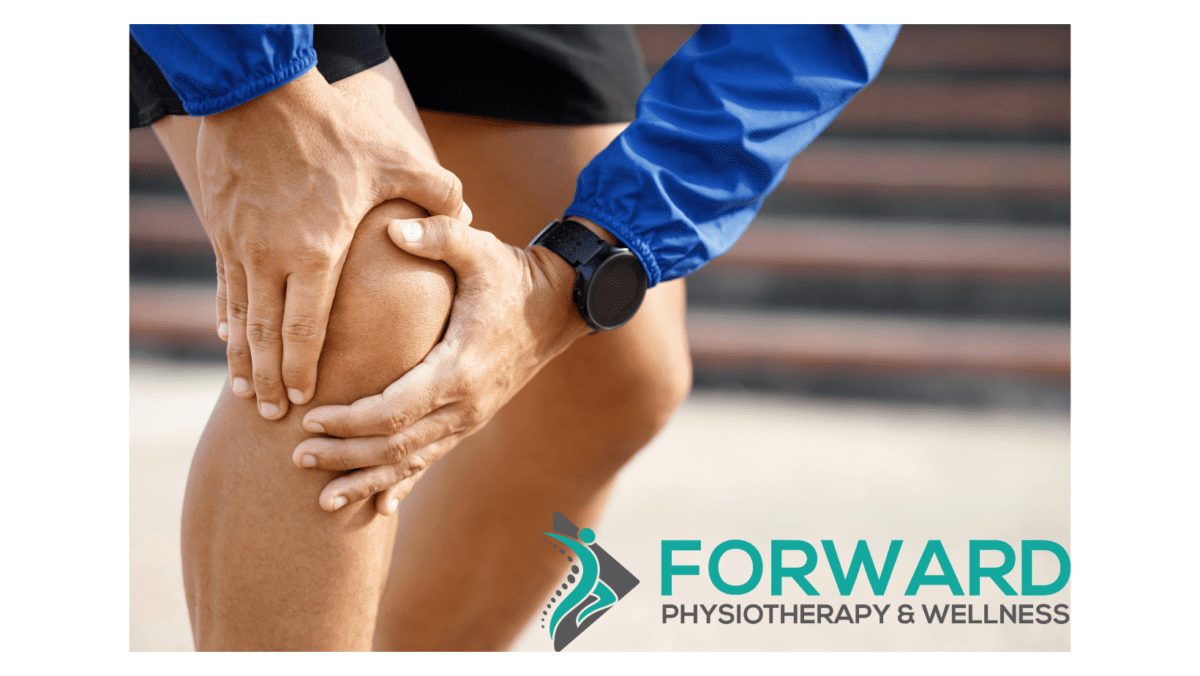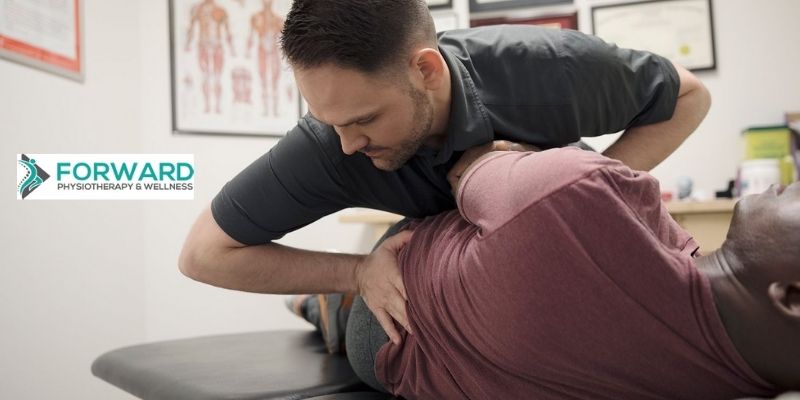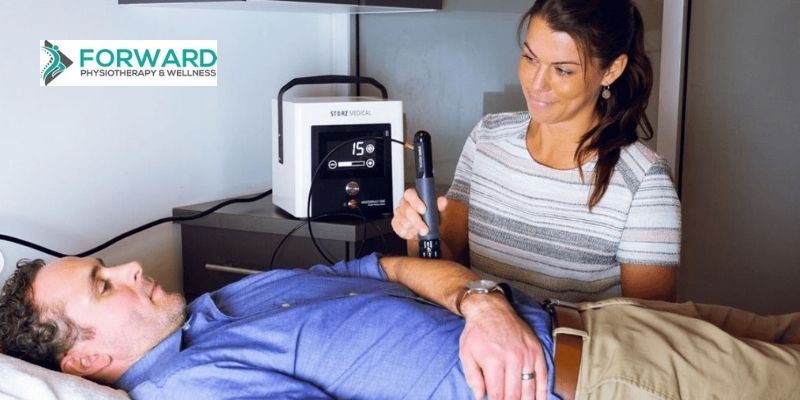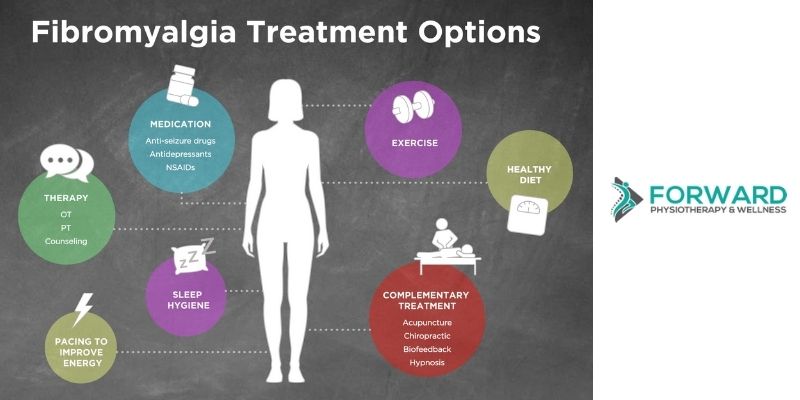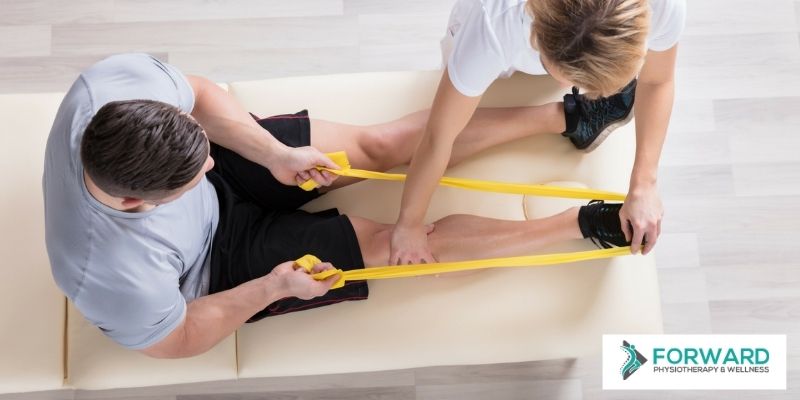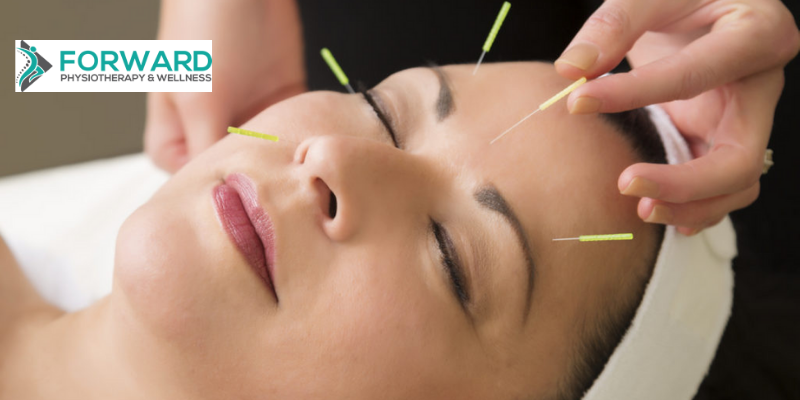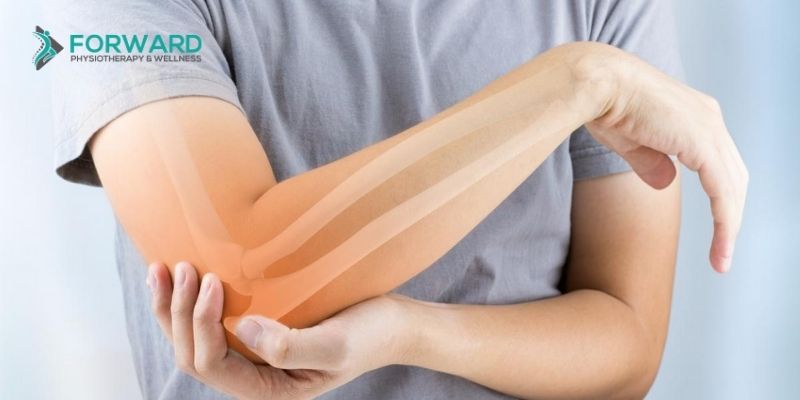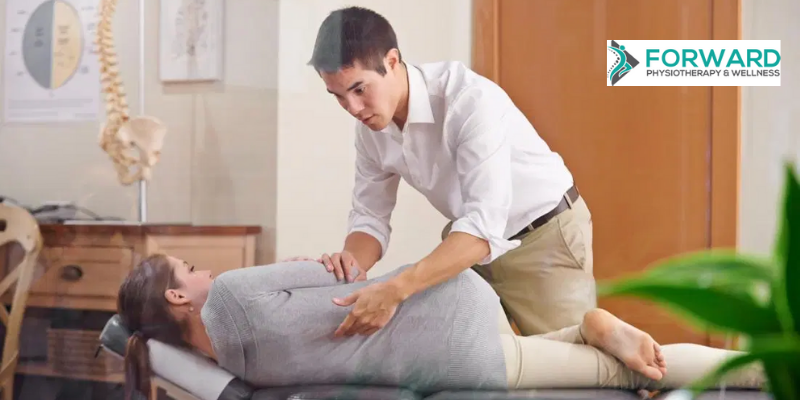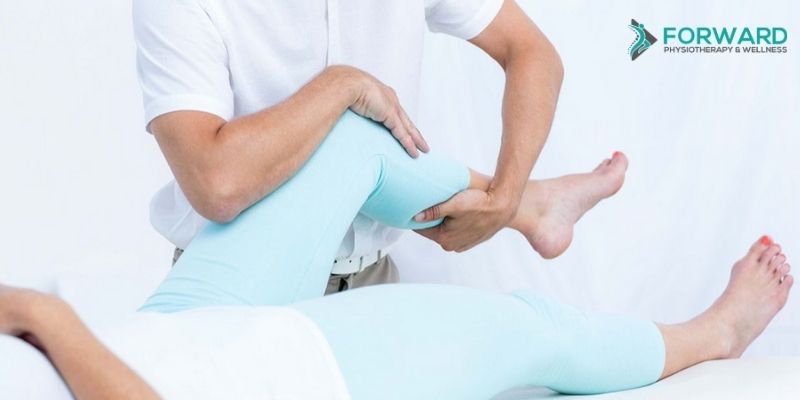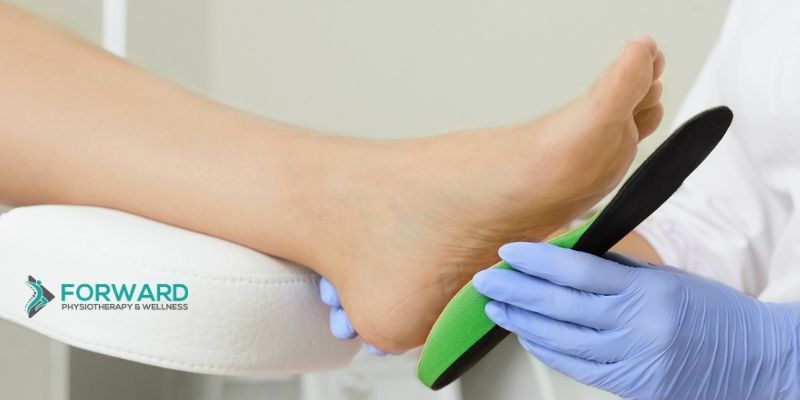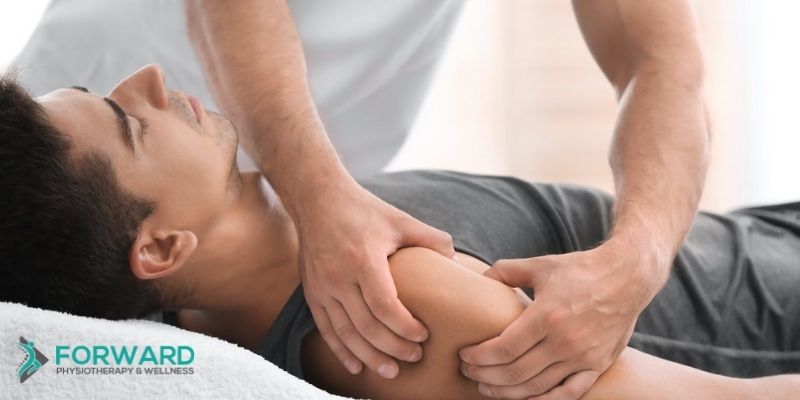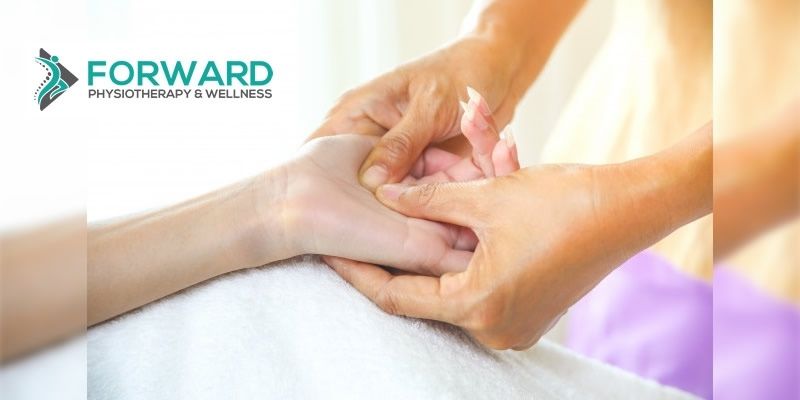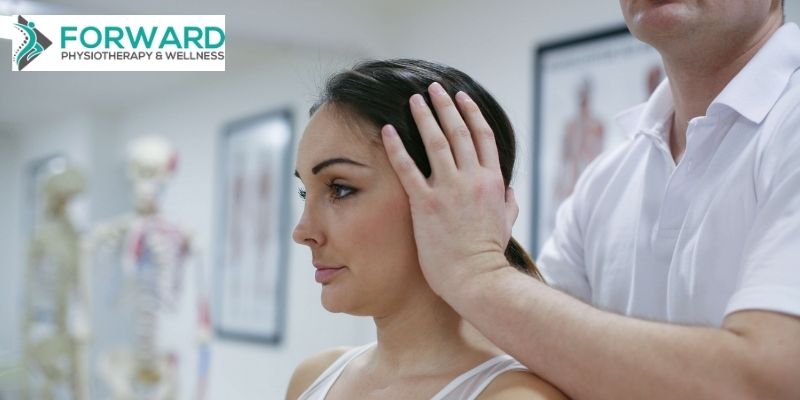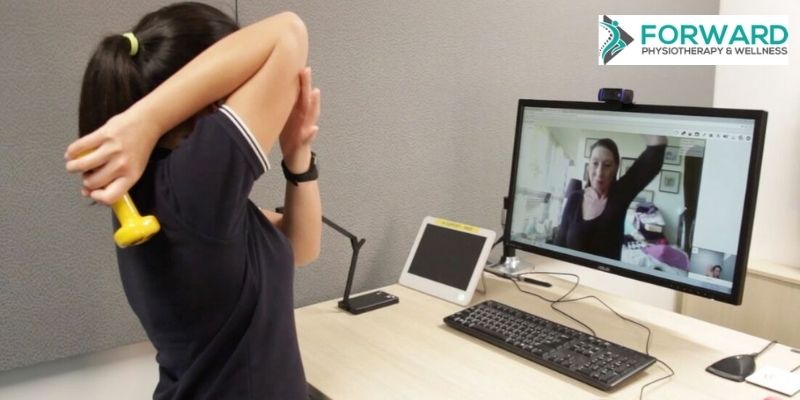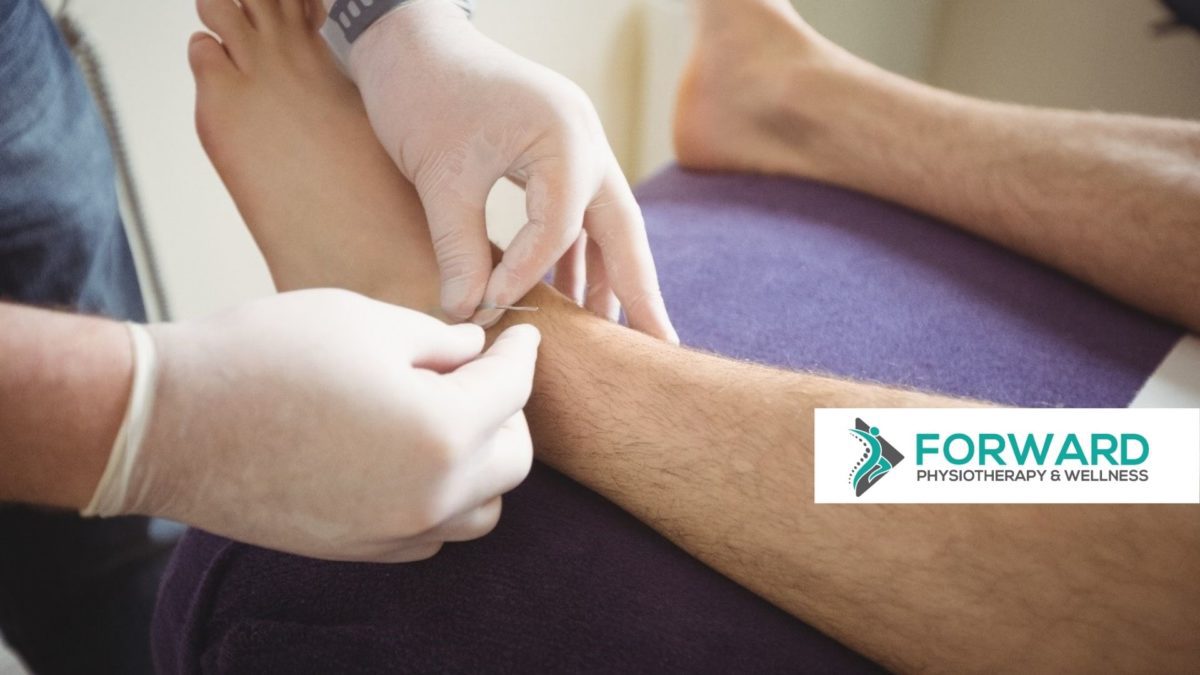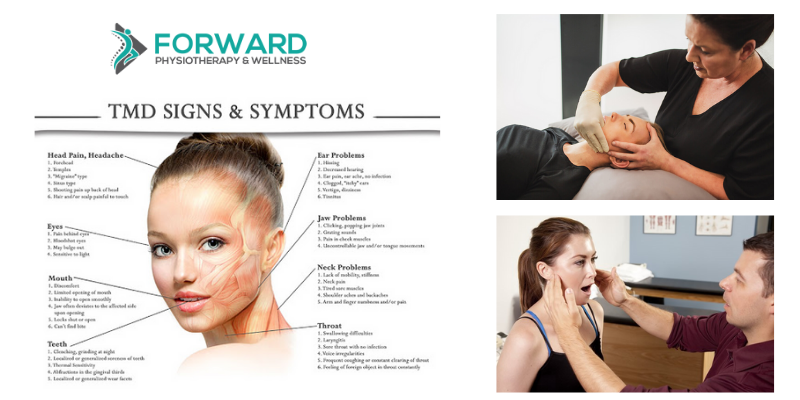
How Can A Physiotherapist Treat TMJ Symptoms?
Posted By: Forward Wellness
TMJ is the acronym for temporomandibular joint. These are the two joints connecting the temporal bone of the skull to the mandible or jaw. These joints allow chewing, speaking, and movement of the jaw without restrictions. However, the jawbone can develop dysfunction popularly called temporomandibular dysfunction (TMD). This dysfunction can result in pain and difficulties in your daily activities such as chewing. Treatment often involves a team approach including a dentist and a physiotherapist.
Symptoms of TMD
With TMD, it can be difficult to chew food. The symptoms can range from mild to severe. The pain can last for only a few days, or it can become chronic. The symptom that is the most common is jaw pain. Here is a list of other symptoms experienced by patients with TMJ dysfunction:
- Dizziness
- Headaches
- Nausea
- Clicking or popping
- Spasm or tightness in the jaw muscles
- Difficulty opening mouth
- Sensation of mouth being "stuck" in an open position
- Tenderness to touch your jaw
- Sensation of "fullness" in your ear
Causes of TMD
Injury to your jaw may be caused by many factors. Common factors include clenching habits, motor-vehicle accidents, poor posture, congenital abnormalities, or repetitive overuse. The injury may cause "misalignment" of the jaw and painful movements. Lets further explore some of these causes of TMD:
Bad posture habits:

One thing that most people don’t realize is the connections that exist between their posture, the neck, and the muscles controlling their jaw. Constantly having the head in a forward position can leads to strain or dysfunction of the jaw. This kind of pain is commonly prevalent in people who spend long hours sitting at a desk for work. Some other activities that can place the head in a forward position include carrying/feeding a child on the same hip and sitting in a car for long hours while traveling. Extra strain is put on the ligaments, disk, and muscles of the TMJ if the head is kept in a forward position.
Chronic jaw clenching:

Stress and other factors can cause people to clench their jaw during their day or while asleep. This overworks the surrounding muscles of the TMJ. This results in muscle tightness, spasms, and pain/tenderness. Muscle tightness can also limit your ability to open your jaw, or move your jaw side to side. Tenderness of the muscle can also cause pain when you are trying to use the muscle (for example when chewing).
Eating:
Sometimes, the TMJ can be injured while eating. Those who are predisposed to TMJ dysfunction may find some of their triggers include opening very wide (for example when eating an apple) or excessive chewing (for example chewing gum).
Fracture:
It is possible that a history of trauma to the face or head can fracture the facial bones and affect the jaw. This may result in TMD. Pain and stiffness may remain in the jaw even when the facial fracture has healed.
Problems with teeth alignment:
An unusual positioning of the teeth can stress the TMJ. It is also common to experience jaw pain during the process of recieving orthodontic care or braces. A physiotherapist may help to relieve some of this jaw tension as you go through your orthodontic journey and teach you ways to manage this pain until your braces are off.
Surgery:
Certain kinds of surgical procedures to the jaw and face may reduce the mobility of the TMJ. For example, your jaw may be sore following dental surgery such as wisdom tooth removal or jaw reconstruction.
Trauma:
A direct injury to the jaw may cause an inflammatory response leading to pain and stiffness. Hypermobility can be another result of trauma to the joint.
Arthritis:
Just like any other joint in the body, the jaw can be subject to degeneration or arthritis. Your physiotherapist has many strategies to reduce pain caused by arthritis. Degeneration is a natural process that takes place in all of our joints with age and does not have to be painful.
Trismus:
Trismus is the inability to open the mouth/jaw. Your physiotherapist can assess the cause of this opening restriction and rule-out serious pathology as a possible cause.
How A Physical Therapist Can Help
The natural movement of your jaw can be restored, and the pain can be reduced with the help of a physical therapist. Depending on the condition, the best treatment plan will be recommended to you by your physiotherapist. These treatments may include:
Posture education:
You can make a huge difference in treating TMD long-term if you change your forward head posture. Sitting with your head in a forward position places serious strain on the muscles in the neck and jaw. This stresses the TMJ, which may lead to its dysfunction. The physiotherapist will teach you how to improve your head position, show you stretches to make shortened tissues longer, and important exercises to make postural muscles gain more strength. With your physiotherapist, you will also get help on how to ergonomically set up your workplace and any other place where you tend to spend a lot of time; this includes the time spent in the car while commuting, and sleep posture too.
Improving TMJ mobility:
If your TMJ is assessed and ascertained that the dysfunction is a result of stiffness of the joint, the physiotherapist can use manual therapy to increase mobility and relieve the pain. Through a combination of hands-on therapy and stretches of the jaw, full-motion and muscle flexibility can be restored. Your physiotherapist will also teach you exercises to strengthen the muscle around the joints and will also educate you on how not to exert too much pressure on the jaw joints.
Other pain treatments for TMJ dysfunction:
When a patient is in pain, all that they want is some degree of relief. A physiotherapist may offer other pain management treatments if the pain is severe. The treatments administered by a physiotherapist to reduce the pain may include acupuncture, dry needling, manual therapy, massage and soft tissue release, thermal modalities, and ultrasound.
Reducing muscle spasm:
Muscle spasms or tightness can prevent the TMJ from healing naturally. Since physiotherapists are experts in anatomy as well, they can assess the TMJ and the surrounding soft tissues. Physiotherapists are equipped with techniques to release spasm and tightness in the jaw muscles.
Referral to a dentist:
If it appears that your teeth are contributing to the cause of your TMD, a physiotherapist may recommend that you see a dentist. There are dentists whose specialty is in TMD, and they will help correct problem. They have special tools that improve the functioning of the jaw, relieve pain and relax the TMJ. You may also be referred to a dentist if a custom night splint will be a part of your treatment plan.
Strengthening for hypermobile joints:
If the TMJ appears to move too much or in a poor pattern, it can result in dysfunction and pain. A physiotherapist will help you carry out exercises and prescribe treatments that will enhance your pattern of movement and strengthen the weak muscles for the long-term.
Conclusion
A physiotherapist can assess the TMJ and recommend treatments to help relieve the pain and restore function. Treatment may include manual therapy, needling, exercise, modalities, and referral to a dental specialist.






